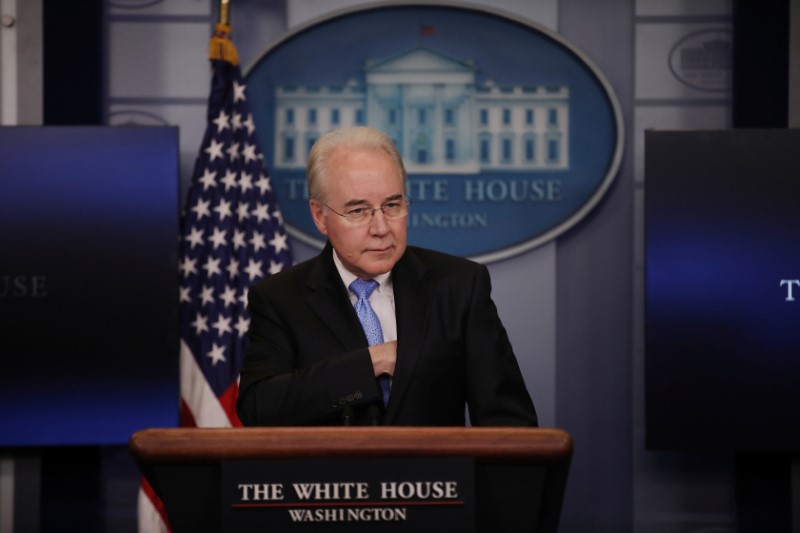NEW YORK (Reuters) - The Trump administration told states on Monday that it was opening the door for them to make changes to their health insurance programs by using a section of the 2010 Affordable Care Act that gives them the flexibility to do so.
President Donald Trump and Tom Price, Health and Human Services Secretary, have promised to begin transferring more power over health insurance to the states in a three-part process. This would include rule-making to tweak the guidelines under the ACA, the healthcare overhaul bill currently being considered by Congress, and then further legislation.
As the administration seeks to repeal Obamacare, it says it will aim to replace the federal oversight on insurance plans with state control.
Former President Barack Obama's national healthcare reform law, often called Obamacare, had originally laid out a roadmap for states to have more power in deciding how to implement the law as long as they met four key criteria for so-called state innovation waivers.
But in 2015, the Obama administration issued new regulatory guidance that would have tightened the use of such waivers, which were able to be used as of Jan. 1, 2017.
However, the federal Centers for Medicare and Medicaid said in a news release on Monday that the "section 1332" waivers could be used to help states receive funding to help offset costs for high-risk patients and premium stabilization programs related to the individual marketplace.
More sick people signed up for insurance in that program than health insurers had anticipated, driving premiums up 25 percent this year on average and raising questions about whether insurers will remain to offer insurance in 2018 during the transition to the new Trump plans. UnitedHealth Group Inc (NYSE:UNH) and Aetna Inc (NYSE:AET) largely left the market this year, while Anthem Inc has stayed in for 2017.

The Trump administration is backing the bill in the U.S. House of Representatives that would gut parts of Obamacare, but it is not certain it will get the support needed for passage in the U.S. Senate, where it faces resistance from both conservative and moderate Republicans.